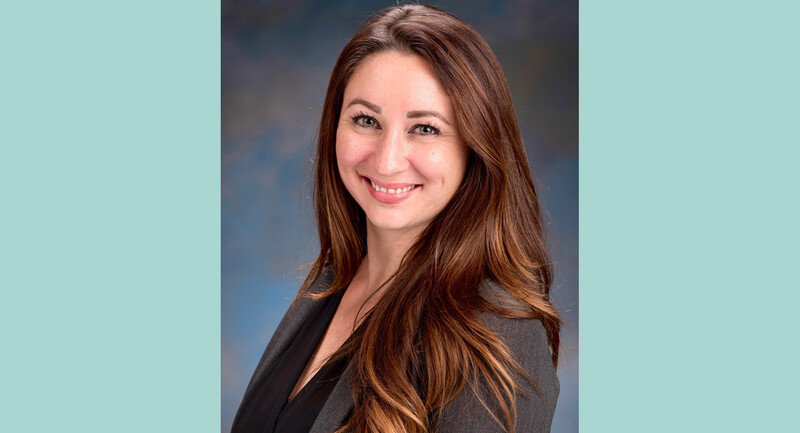The Newsweek cover features a blackboard with one sentence printed over and over on it as though some recalcitrant kid would learn his lesson if he just wrote it often enough: We must fire bad teachers. The headline suggests that this chalkboard legend is "the key to saving American education."
My first thought is to cancel my subscription to Newsweek—for its sensationalism and oversimplification—and its trite image (blackboards are passé). But I read on. The fact is that teachers are being fired en masse, with whole faculties in low-performing schools being dismissed without individual review. Although I want more investigative reporting from Newsweek about why these schools are failing, I get instead an opinion piece about how school failures are the teachers' and their unions' fault.
Worse, Evan Thomas and Pat Wingert turn an important idea—namely, that the quality of teachers is the single most important factor in making a difference for students—on its head. They downplay all the factors that help create good teachers—for example, adequate preparation, instructional know-how, solid curriculum, ongoing professional development, positive support from colleagues and supervisors, and a collective effort by the school, families, and community to make school a successful experience for every child. Thomas and Wingert assert that much of the ability to teach is innate. (Would they say that the ability to do accounting or write articles is innate, I wonder, or that good education doesn't improve those skills?) And, finally, they suggest that firing "the really bad teachers" as well as "the thousands who let down their students in more ordinary ways" would do much to restore respect to the profession.
If only it were that easy. In a profession of 5 million, no doubt we have bad teachers. And, of course, we must fire the "really bad ones"—for example, the four pedophiles and child abusers Thomas and Wingert describe. Where we disagree, though, is how to respond to the thousands (their number) who let down their students in ordinary ways.
Who are these thousands, and why are they floundering? Who, or what assessments, can objectively judge bad teachers and on what grounds? Do these teachers let down their students because they lack skills, knowledge, or support, or because they don't care for kids? Does firing some teachers and hiring a new group really close achievement gaps and raise international standings? Where in the world has that happened on a large scale?
In this issue of Educational Leadership on "The Key to Changing the Teaching Profession," our authors focus on productive and positive ways to change. They describe the many different ways teachers are being prepared to teach (p. 6), revealing that there are just as many differences among alternative routes as there are among traditional schools of education. Some institutions require a full year of practice teaching in addition to college. Yet some schools hire teachers who have not had a single hour of classroom training (p. 62). Some programs accept only highly qualified candidates; others accept anyone who applies. Some are evaluated by their students' success; others are not scrutinized by anyone outside their program.
And we learn that at present the 20 percent of teachers trained through alternative programs mirror the achievement of their colleagues who were trained more traditionally. In other words, both alternative and university-based programs produce more and less effective teachers (p. 22). That is not to say there aren't clearly superior and inferior preparation programs, only that there aren't yet enough superior ones.
Meanwhile, we also learn that the teaching force itself is ballooning (p. 14). The teacher population is growing both older and younger and becoming more predominantly female. Although teachers as a whole hold steady in academic abilities, teacher turnover is on the rise.
Our authors discuss how best to support and evaluate teachers beyond their first few years (p. 54) and how best to entice successful teachers to stay (pp. 48, 60, 66, 76). What most often improves student learning? And what helps teachers improve? Generation Y teachers (pp. 28, 70) mention that feedback is important to them, as is a chance to make a difference. Interestingly, master teachers tell us something similar: They want to continue to hone their craft throughout their career (p. 36).
Our conclusion: Supporting teachers is neither dramatic nor easy. It certainly requires more time, more concerted effort, and more understanding of the nuances of the difficult work of teaching than does criticizing teachers as a group.
In a profession as large and as disrespected as teaching, one cannot expect simplistic answers to solve problems. Just as firing reporters won't save journalism, firing teachers won't save education. I'm among those who think both institutions just might survive—and improve—if we keep on striving to do better.
<P ID="scherer-audio">**** Scherer Audio Here ****<!-- Start of Brightcove Player --><!--div style="display:none"></div--><!--By use of this code snippet, I agree to the Brightcove Publisher T and C found at https://accounts.brightcove.com/en/terms-and-conditions/. --><!--<object id="myExperience79287620001" class="BrightcoveExperience"><param name="bgcolor" value="#FFFFFF"><param name="width" value="570"><param name="height" value="380"><param name="playerID" value="47884069001"><param name="publisherID" value="10228042001"><param name="isVid" value="true"><param name="dynamicStreaming" value="true"><param name="@videoPlayer" value="79287620001"></object>--><!-- This script tag will cause the Brightcove Players defined above it to be created as soonas the line is read by the browser. If you wish to have the player instantiated only afterthe rest of the HTML is processed and the page load is complete, remove the line.--><!-- End of Brightcove Player --><!-- use this code for HTML <object id="flashObj" width="570" height="380" classid="clsid:D27CDB6E-AE6D-11cf-96B8-444553540000" codebase="http://download.macromedia.com/pub/shockwave/cabs/flash/swflash.cab#version=9,0,47,0"><param name="movie" value="http://c.brightcove.com/services/viewer/federated_f9?isVid=1" /><param name="bgcolor" value="#FFFFFF" /><param name="flashVars" value="videoId=79287620001&playerID=11490813001&playerKey=AQ~~,AAAAAmGjiRE~,escbD3Me8-zfW2J4SI2ZSHPsqtup23tT&domain=embed&dynamicStreaming=true" /><param name="base" value="http://admin.brightcove.com" /><param name="seamlesstabbing" value="false" /><param name="allowFullScreen" value="true" /><param name="swLiveConnect" value="true" /><param name="allowScriptAccess" value="always" /><embed src="http://c.brightcove.com/services/viewer/federated_f9?isVid=1" bgcolor="#FFFFFF" flashVars="videoId=79287620001&playerID=11490813001&playerKey=AQ~~,AAAAAmGjiRE~,escbD3Me8-zfW2J4SI2ZSHPsqtup23tT&domain=embed&dynamicStreaming=true" base="http://admin.brightcove.com" name="flashObj" width="486" height="412" seamlesstabbing="false" type="application/x-shockwave-flash" allowFullScreen="true" swLiveConnect="true" allowScriptAccess="always" pluginspage="http://www.macromedia.com/shockwave/download/index.cgi?P1_Prod_Version=ShockwaveFlash"></embed></object>-->






